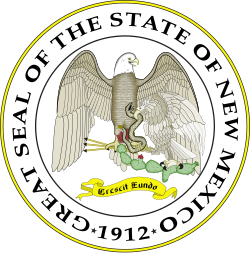| ||||||||||||||||||||
| ||||||||||||||||||||
 County results Johnson: 50–60% 60–70% 70–80% Chávez: 50–60% 60–70% 70–80% | ||||||||||||||||||||
| ||||||||||||||||||||
| Elections in New Mexico |
|---|
 |
The 1998 New Mexico gubernatorial election was a contest to elect the next governor of New Mexico. The winner of the election would serve a term from January 1, 1999 until January 1, 2003. Incumbent Republican (now Libertarian) Governor Gary Johnson was elected to a second term. As of 2025, this is the last time a non-Hispanic was elected governor of New Mexico.
Contents
- Primary election
- Democratic Party
- Republican Party
- General election
- Campaign
- Polling
- Results 3
- Results by county
- Notes
- References
- See also
In his campaign, Johnson promised to continue the policies of his first term: improving schools; cutting state spending, taxes, and bureaucracy; and frequent use of his veto and line-item veto power. [1] Fielding a strong Hispanic candidate in a 40% Hispanic state, the Democrats were expected to oust Johnson, [2] but Johnson won by a margin of 55% to 45%. [3] This made him the first governor of New Mexico to serve two successive four-year terms after term limits were expanded to two terms in 1991. [4] Johnson made the promotion of a school voucher system a "hallmark issue" of his second term. [5] This election is the first time since 1968 that an incumbent Republican Governor of New Mexico was re-elected or won re-election.



